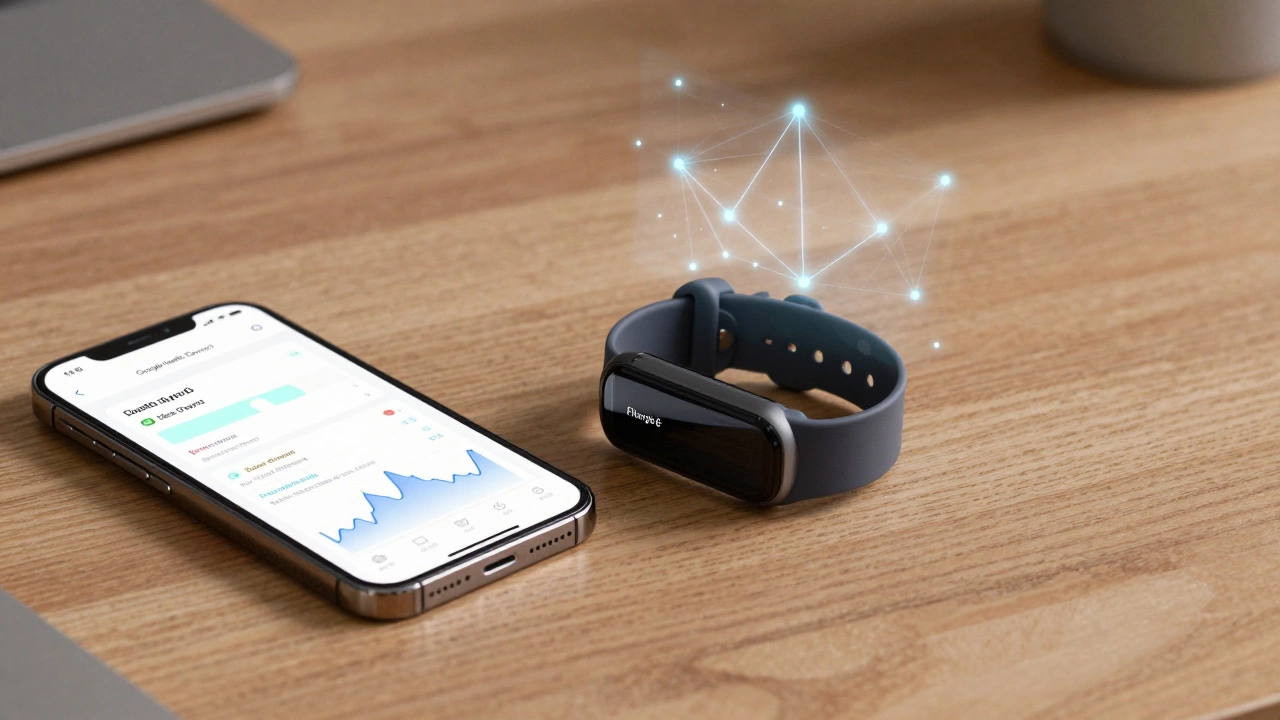Fitness Trackers: Your Quick Guide to Choosing and Using Wearable Tech
Ever wonder why so many people wear tiny screens on their wrists? It’s not just a fashion statement – a fitness tracker can be a real game‑changer for your health routine. Below you’ll find straight‑forward tips to pick the right device, set it up, and actually use the data to feel better.
Why Wear a Fitness Tracker?
A good tracker does more than count steps. It watches your heart rate, reminds you to move when you sit too long, and can log sleep quality. Seeing numbers in real time often pushes you to walk that extra block or take a quick stretch. Plus, many apps turn your activity into easy‑to‑read charts, so you can spot patterns without guessing.
How to Pick the Right Tracker for You
Start with the basics you need. If you only want step counts, a simple band will do and you’ll save money. Want accurate heart‑rate zones for HIIT? Look for optical sensors that work during workouts. Outdoor runners should check GPS accuracy and battery life – a device that lasts a week on a single charge saves hassle.
Don’t forget comfort. A tracker that feels bulky will sit in a drawer. Look for lightweight straps, interchangeable bands, and a screen that’s easy to read in sunlight. Water resistance matters too; if you swim or sweat heavily, a 5‑ATM rating is a safe bet.
Compatibility is another piece of the puzzle. Most trackers sync with iOS and Android, but some features, like call answering, are limited to certain phone brands. Before you buy, verify the app works with your phone and that any extra functions you need (music control, notifications) are supported.
Price can be tempting to chase. High‑end models boast advanced metrics, but mid‑range devices cover most health needs for under £100. Think of your tracker as a tool, not a status symbol – choose what actually helps you move more, not what looks flashy.
Once you’ve got the device, set it up in minutes. Download the companion app, create a profile, and let the tracker sync with your phone’s health data. Most apps guide you through a short calibration – that’s where you input height, weight, and activity level. Accurate input leads to better calorie estimates.
Now the fun part: using the data. Look at your daily step goal – 10,000 is a common target, but any increase over your baseline is a win. Check heart‑rate zones after a workout; if you’re spending time in the “fat‑burn” or “cardio” zones, you’re likely hitting the right intensity. Sleep scores can highlight if you’re restless, prompting a bedtime routine tweak.
Don’t get obsessed with numbers. Use the tracker as a nudge, not a judge. If a day’s step count is low, treat it as a reminder to add a short walk tomorrow. Celebrate streaks, but allow flexibility – life happens.
Maintenance matters. Clean the sensor area with a soft cloth to avoid inaccurate readings. Charge the battery before it drops below 20%; most devices have quick‑charge options, so you won’t miss a full day’s data.
When a tracker no longer fits your goals – maybe you need more advanced metrics or a longer battery – consider a swap. The market moves fast, but the core principles stay the same: comfort, essential features, and a device that actually gets you moving.
Bottom line: a fitness tracker is a simple helper that turns everyday motion into clear feedback. Pick one that matches your lifestyle, set it up once, and let the numbers motivate you to stay active. Happy tracking!

Is Fitbit Going Away in 2025? What Really Happened After Google’s Acquisition
Maeve Larkspur Feb 22 0Fitbit didn't disappear in 2025 - it got smarter. Google upgraded its hardware and software, making Fitbit devices more accurate and medically useful than ever. Here's what's still available, what changed, and why it's still a top choice in 2026.
More DetailIs there a free walking tracker? Here are the best no-cost options that actually work
Maeve Larkspur Feb 15 0You don't need to buy a fitness tracker to count your steps. Your phone already has a free walking tracker that works. Here's how to use it, which apps are best, and what to avoid.
More Detail
Is It Good to Wear a Fitbit All the Time? Real Benefits and Hidden Risks
Maeve Larkspur Jan 26 0Wearing a Fitbit all day offers benefits like sleep tracking and heart rate monitoring, but it can also cause skin irritation and anxiety. Learn when it helps-and when it’s better to take it off.
More DetailDo Doctors Recommend Fitness Trackers? What the Evidence Really Says
Maeve Larkspur Nov 17 0Doctors don't universally recommend fitness trackers, but many use them to help patients build movement habits, manage chronic conditions, and spot early health warning signs. Here's what they really think.
More DetailGarmin vs Fitbit: Which Fitness Tracker Really Fits Your Lifestyle?
Maeve Larkspur Nov 16 0Garmin and Fitbit both make great fitness trackers, but they serve very different needs. Garmin excels in performance data and battery life, while Fitbit offers simplicity and daily motivation. Choose based on your goals, not just features.
More DetailAre Fitness Trackers Worth It? Real Insights Before You Buy
Maeve Larkspur Jul 20 0Unpack whether fitness trackers are truly worth your money. Explore honest pros, real downsides, and what to know before buying these wearable gadgets.
More Detail
Can You Answer Phone Calls on a Fitbit? Everything You Need to Know for 2025
Maeve Larkspur Jul 17 0Wondering if you can answer phone calls with your Fitbit? Explore which Fitbit models support call features, how to set it up, and what works best for your lifestyle.
More DetailIs Google Abandoning Fitbit? What’s Really Happening With Your Favorite Fitness Tracker
Maeve Larkspur May 29 0Rumors about Google leaving Fitbit users behind have left a lot of people feeling uneasy about their fitness routine. This article dives into what’s really happening, what changes are coming to Fitbit, and if you should start looking for alternatives. You’ll also find helpful tips on making the most of your current device and handling the new updates. Whether you love your Fitbit or you're just worried about your step count, this is everything you need to know.
More Detail
Is Fitbit Being Discontinued? Everything You Need to Know in 2025
Maeve Larkspur May 28 0Curious if Fitbit is being discontinued? This article breaks down what's happening with Fitbit devices in 2025, why people are worried, and what Google's role is. You'll find out which Fitbits are still supported, what to expect if you own one, and handy tips for choosing your next wearable. Stay informed before you decide to buy or upgrade.
More DetailCan I Track My Workout Without My Apple Watch? Simple Fitness Tracker Alternatives
Maeve Larkspur Apr 23 0This article explores how you can track your workouts without an Apple Watch, breaking down practical tools and apps you can use instead. It covers options using just your phone, ways to get accurate results, and looks into old-school pen-and-paper methods that surprisingly still work. Plus, you'll pick up some smart tips to stay motivated and organized. Whether you lost your Apple Watch or just never had one, you’ll find straightforward solutions to track your fitness progress.
More DetailIs Fitbit Losing Its Popularity? A Look into the Fitness Tracker Market
Maeve Larkspur Mar 4 0Fitbit once dominated the fitness tracker market, but is it still holding onto its crown? The wearable tech landscape is evolving fast with new competitors, and consumer preferences are shifting. Explore why Fitbit's popularity might be waning and what this means for the future of fitness gadgets. Discover how features, brand loyalty, and innovations play into this changing dynamic.
More Detail
Are Heart Rate Watches Really Safe for Everyday Use?
Maeve Larkspur Feb 16 0Worried about the safety of heart rate watches? These popular fitness trackers are convenient for monitoring your health, but are they always safe to use? This article explores potential risks, safety tips, and how to maximize their benefits while minimizing any concerns.
More Detail